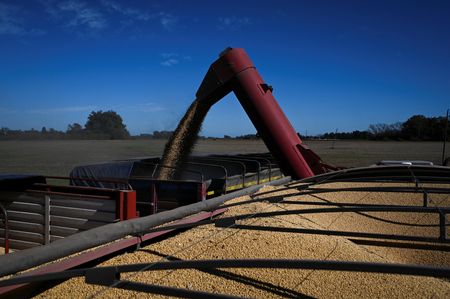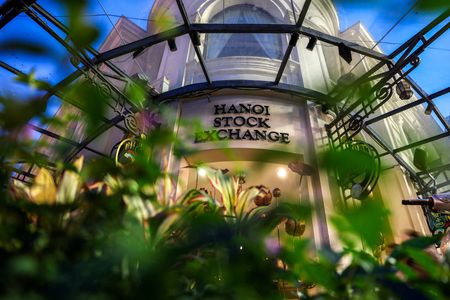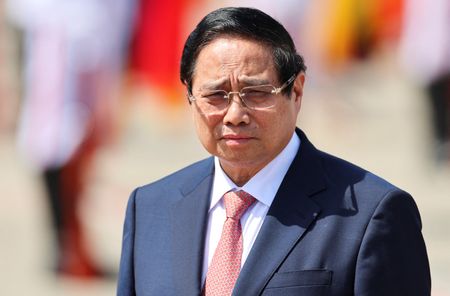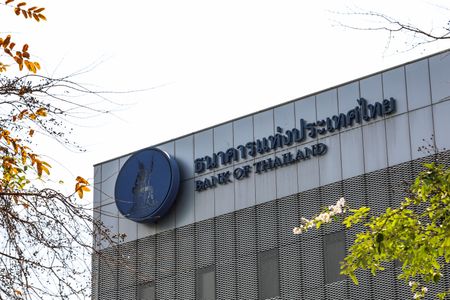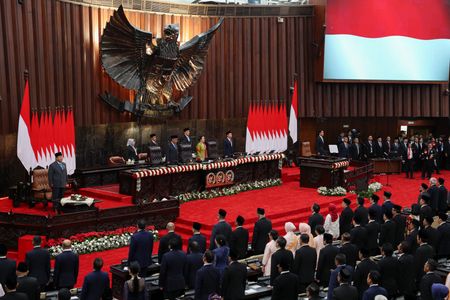By Naveen Thukral and Ella Cao
SINGAPORE/BEIJING (Reuters) -Chinese buyers have booked at least 10 cargoes of soybeans from Argentina, three traders told Reuters on Tuesday, taking advantage of low prices to build inventories for the fourth quarter amid Sino-U.S. trade tensions.
The deals followed Argentina’s move on Monday to temporarily remove export taxes on grains and their by-products, including soy, making its supplies more competitive in the global market.
The Panamax-sized shipments of 65,000 metric tons each are scheduled for November, with CNF (cost and freight) prices quoted at a premium of $2.15-$2.30 per bushel to the Chicago Board of Trade (CBOT) November soybean contract, two traders with direct knowledge of the matter said.
One of the traders said Chinese buyers had booked 15 cargoes.
U.S. farmers are missing out on billions of dollars of soybean sales to China halfway through their prime marketing season, as protracted trade talks halt exports and rival South American suppliers led by Brazil step in to fill the gap, traders and analysts said.
“These deals were done last night after Argentina’s decision on export tax,” said one of the traders, declining to be identified as the person was not authorised to speak with media. “It clearly means that China doesn’t need U.S. beans.”
China has yet to purchase any U.S. soybean cargoes from its autumn harvest.
Argentina’s government said the temporary grain tax suspension will last through October, or until declared exports reach $7 billion, a move that drove Chinese soymeal futures lower on Tuesday.
As of 0207 GMT, China’s most-active Dalian soymeal futures were down 3.5% and the most-active Dalian soybean oil futures dropped 3.8%.
“The decline in prices was mainly due to Argentina’s removal of grain export taxes yesterday, which made prices more attractive to Chinese buyers given the favourable crushing margins,” said Johnny Xiang, founder of Beijing-based AgRadar Consulting.
“But the impact of this news is likely to be short-lived, as the policy will last for just over a month and Argentina’s overall supply is limited,” he added.
(Reporting by Naveen Thukral in Singapore and Ella Cao in Beijing; Editing by Tony Munroe and Kim Coghill)

